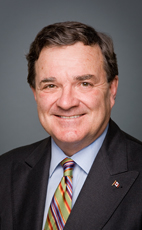Mr. Speaker, in response to parts (a), (b) and (c), a decision to adopt the federal harmonized sales tax in the province of British Columbia rests with the provincial government of British Columbia. Negotiations to implement the decision are matters of federal-provincial relations. Nevertheless, as the Minister of Finance noted in the House of Commons on September 29, 2009, “the discussions that I had with the province of British Columbia began after the provincial election in British Columbia.”
In response to part (d), the Governments of Canada and British Columbia signed the memorandum of agreement, MOA, concerning a Canada-British Columbia comprehensive integrated tax co-ordination agreement, CITCA, on July 23, 2009. For more information, visit the Government of British Columbia online at http://www2.news.gov.bc.ca/news_releases_2009-2013/2009PREM0017-000141.htm.
In response to part (e), the MOA was released shortly after the public announcement by British Columbia of its decision. For more information, visit the Government of British Columbia online at http://www.gov.bc.ca/hst/Documents/HST_MOA.pdf.

